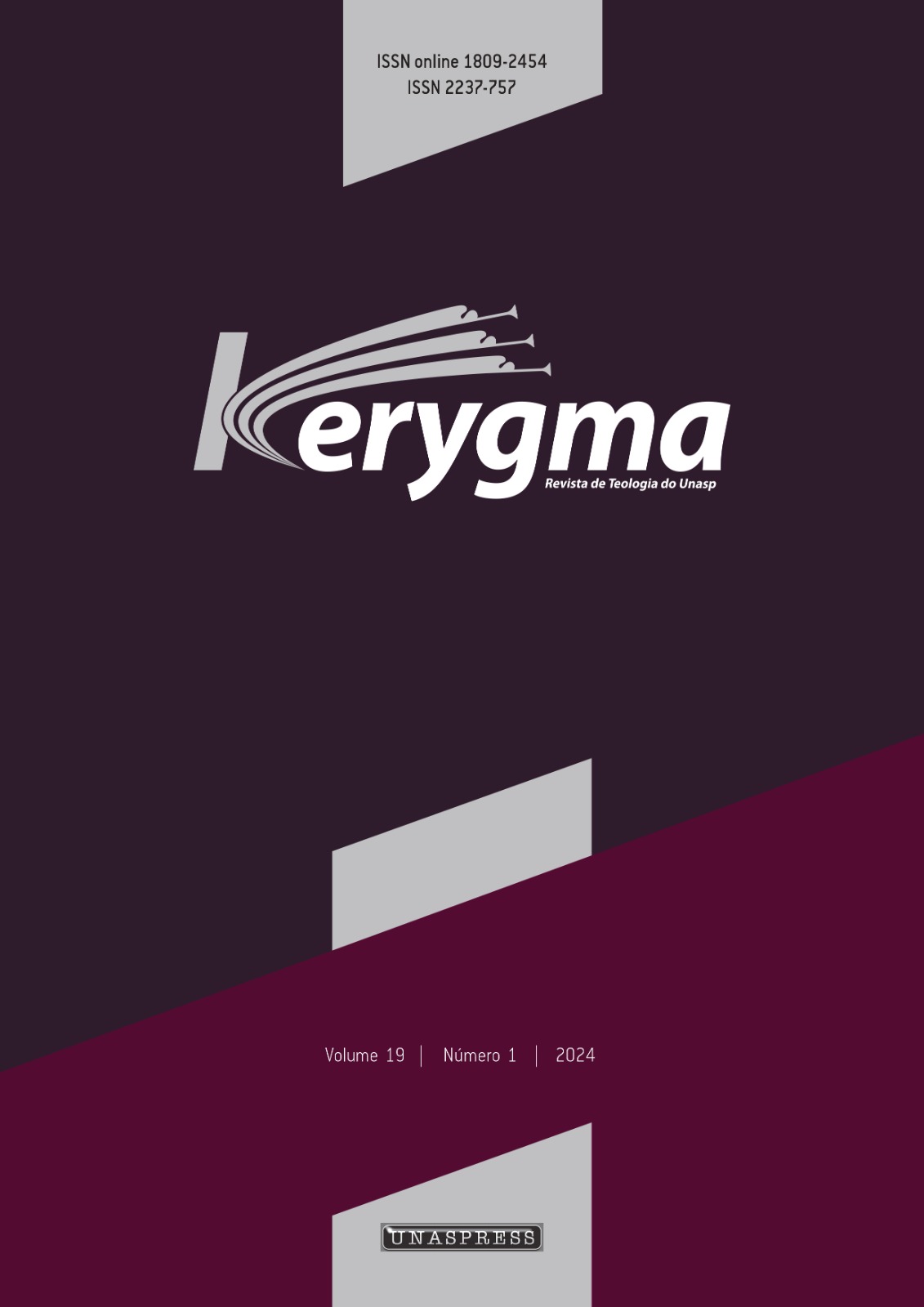Conspiracy theories in the context of escape literature
DOI:
https://doi.org/10.19141/1809-2454.kerygma.v19.n1.pe1632Keywords:
Conspiracy theories, Escape literature, Rabbit holeAbstract
This essay suggests comparisons between conspiracy theories and escape literature in the context of the Christian concern with edifying words. To do so, it uses Perrine's two literary criteria and draws on theories about literature in general, especially those of Compagnon. The essay considers the great appeal of conspiracy theories and suggests that it is commensurate with that of escape literature. Therefore, it proposes that conspiracy theories represent a certain evolution from escape literature, since they are able to create comprehensive fantasies that go beyond the pages of books and interfere in people's lives, gaining their complicity in the figuration of the world.
Downloads
References
ASSIS, Machado de. Esaú e Jacó. Bauru: Via Leitura, 2021.
BAKHTIN, M. Estética da criação verbal. 2. ed. São Paulo: Martins Fontes, 1997. (Coleção Ensino Superior).
CARROLL, L. Alice no país das maravilhas e através do espelho. Barueri: Novo Século, 2023.
COMPAGNON, A. O demônio da teoria: literatura e senso comum. Belo Horizonte: UFMG, 1999.
DENTITH, M. The philosophy of conspiracy theories. New York: Palgrave Macmillan, 2014.
ECO, U. Leitura do texto literário: lector in fabula: a cooperação interpretativa dos textos literários. Lisboa: Presença, 1983.
GULYAS, A. Conspiracy theories: the roots, themes and propagation of paranoid political and cultural narratives. Jefferson, NC: McFarland & Company, 2016.
HODAPP, C.; KANNON, A. Conspiracy theories & secret societies for dummies. Hoboken, NJ: Wiley, 2008.
HOFSTADTER, R. The paranoid style in American politics. Harper’s Magazine, 1964. Disponível em: https://harpers.org/archive/1964/11/the-paranoid-style-in-american-politics/. Acesso em: 10 jun. 2024.
KOCH, I.; ELIAS, V. Ler e compreender: os sentidos do texto. 2. ed. São Paulo: Contexto, 2008.
MENCKEN, H. A Mencken chrestomathy. New York: Alfred A. Knopf, 1949.
MERLEAU-PONTY, M. Fenomenologia da percepção. 2. ed. São Paulo: Martins Fontes, 1999.
PERRINE, L. Literature: structure, sound and sense. 6. ed. Fort Worth: Harcourt Brace, 1993.
RAMSAY, R. Conspiracy theories. Harpenden: Pocket Essentials, 2006.
WEST, M. Escaping the rabbit hole: how to debunk conspiracy theories using facts, logic, and respect. New York: Skyhorse, 2018.
WOLFE, T. You can’t go home again. New York: Scribner, 2011.
Downloads
Published
How to Cite
Issue
Section
License
Copyright (c) 2025 Kerygma

This work is licensed under a Creative Commons Attribution 4.0 International License.
Copyright Statement
In summary, authors who publish in Kerygma must agree that:
-
Once accepted for publication, the copyright of the articles is transferred to Kerygma.
-
All third-party materials used in the text must be properly referenced.
-
Authors must hold the rights or permissions for the use of images, tables, and other graphic materials.
-
Authors guarantee that the submitted manuscript is original, of their own authorship, and has not been submitted or published elsewhere.
-
The opinions and ideas expressed in the texts are the sole responsibility of the authors and do not necessarily reflect the views of the journal.
-
The editors reserve the right to make textual revisions and adjustments in accordance with the journal’s editorial standards.
-
Authors retain copyright and grant the journal the right of first publication, with the work licensed under the Creative Commons Attribution–NonCommercial 4.0 International License.
-
Authors authorize the reproduction and adaptation of the material by Kerygma, with the authors’ participation or express authorization when required.
-
The journal may distribute, store, archive, and make the articles available through any physical or digital means, whether free of charge or paid.
-
Authors may enter into separate agreements for the non-exclusive distribution of the published version of the work, provided that the original publication in Kerygma is acknowledged.
-
Full or partial reproduction of the texts in other publications requires prior written authorization from the editor.
-
Authors are permitted and encouraged to publish and distribute their work online (e.g., in institutional repositories or personal webpages) before or during the editorial process, as this may increase the visibility and citation impact of the published work.














